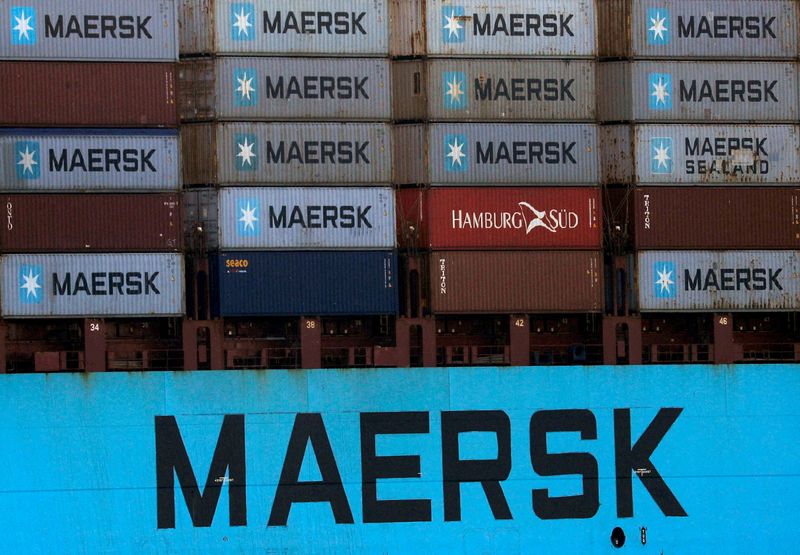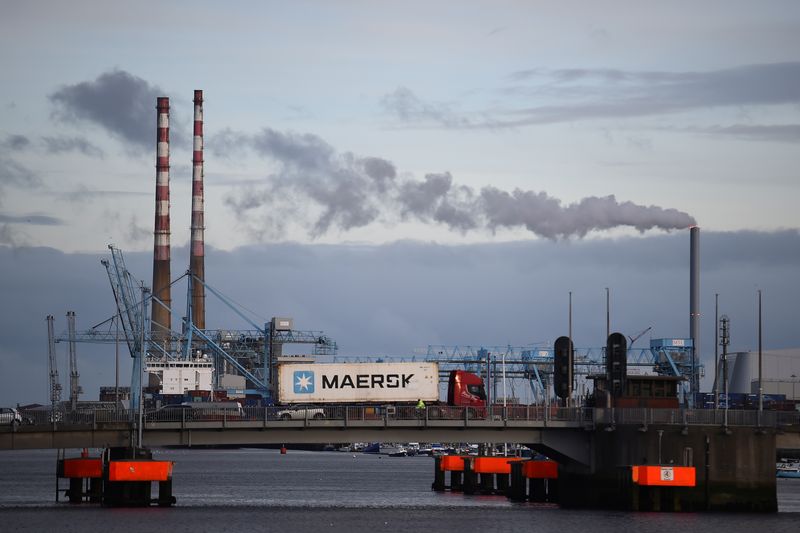By Jacob Gronholt-Pedersen
COPENHAGEN (Reuters) -Shipping group Maersk, often seen as a barometer for global trade, on Tuesday cautioned the container market may normalize in the second half of the year, even as it raised full-year guidance driven by high container freight rates.
The shipping industry has seen record profits in recent quarters as a surge in consumer demand, pandemic-related bottlenecks in U.S. and Chinese ports and more recently an airspace closure following Russia's invasion of Ukraine prompted a spike in freight rates.
But the forecast from Maersk, one of the world's biggest container shippers with a market share of around 17%, according to intelligence provider Alphaliner, is likely to be seen as a negative sign for the global economy.
Maersk said in a trading update on Tuesday that container volumes declined 7% between January and March. The company now expects growth in global container demand to slow this year to between minus 1% and plus 1%, compared to its previous expectation of 2-4% growth.
Swiss logistics group Kuehne & Nagel on Tuesday also reported a dip in container volumes in the first three months of the year.
Maersk revised its guidance for the full year upwards, with underlying earnings before interest, tax, depreciation and amortisation (EBITDA) expected to be about $30 billion compared to $24 billion previously expected and $28.7 billion forecast by analysts in a poll gathered by the company.
The guidance was based on an "assumption of normalization in ocean shipping early in the second half of 2022", it said.
Shares in Maersk traded as much as 8.3% higher at opening and were 6.3% up at 0800 GMT. Shares have lost around one-fifth of their value since an all-time high in January.
"I still expect investors to be cautious due to the risk of a U.S. recession in 2023," said Nordnet analyst Per Hansen.
Maersk reported revenue in the first three months of the year at $19.3 billion, with underlying EBITDA at $9.2 billion, higher than analyst expectations of $19.0 billion and $8.4 billion, respectively.
The results were driven by container freight rates that rose by an average 71% in the first quarter compared to a year earlier, the company said.

"The strong result is driven by the continuation of the exceptional market situation within ocean (shipping)," Maersk said in a trading statement.
Maersk is due to publish full first-quarter results on May 4.
